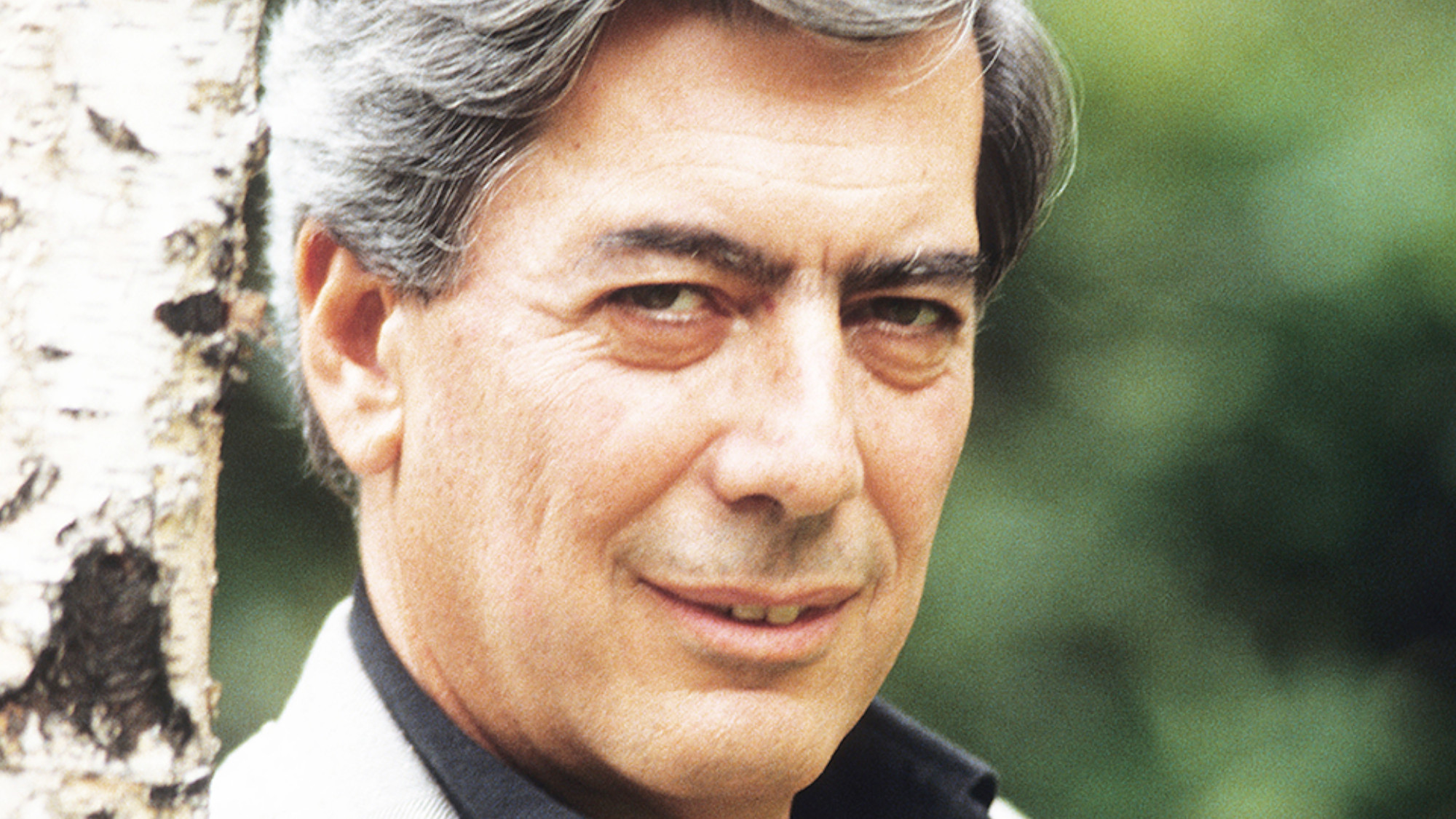Mario Vargas Llosa: The novelist who lectured Latin America
The Peruvian novelist wove tales of political corruption and moral compromise

A free daily email with the biggest news stories of the day – and the best features from TheWeek.com
You are now subscribed
Your newsletter sign-up was successful
Fact and fiction circled each other in the works of Mario Vargas Llosa. Through realism, erotica, and even crude slang, the Peruvian novelist wove tales of political corruption and moral compromise. As part of the Latin American literary boom of the 1960s—alongside Colombia's Gabriel García Márquez and Argentina's Julio Cortázar—he reached international fame, winning the Nobel Prize in literature in 2010. But unlike most other regional giants, he never embraced leftist politics. While his fictional works appeared to support revolution and speaking truth to power, his expository essays tended toward conservatism. He even unsuccessfully ran for president of Peru in 1990 as a right-winger, proposing to privatize state enterprises and lay off public-sector workers. "If you're a writer in a country like Peru or Mexico, you're a privileged person because you know how to read and write," he said. "It is a moral obligation of a writer in Latin America to be involved in civic activities."
Born in Peru, Vargas Llosa grew up in Bolivia, where his mother told him his father was dead. In fact, his parents had divorced before his birth; they reunited when he was 10 and soon packed him off to military school in Lima. He retaliated by writing a novel, 1963's The Time of the Hero, a scathing account of life in a military academy that portrayed officers as abusive and corrupt. Scandalized generals denounced the book, which only turned it into a sensation. At 19, Vargas Llosa eloped with his uncle's 29-year-old sister-in-law, inspiring his novel Aunt Julia and the Scriptwriter. "His distaste for the norms of polite society in Peru gave him abundant inspiration," said The New York Times, but he refused to live there. Instead, he spent decades in Europe, feted as an international literary star.
"His fame and swelling ambition fueled his run for president," said The Washington Post. But he came across as an elitist and failed to win over Peru's largely impoverished indigenous electorate. Chastened, he returned to Europe and became a columnist for Spain's El País, espousing his love of free markets to a global readership. "His combative defense of this position earned him enemies" among Latin America's left, said The Guardian. Yet he maintained his dedication to his craft. Writing "is a way of living with illusion and joy and a fire throwing out sparks in your head," he said. "This is an experience that continues to bewitch me as it did the first time."
The Week
Escape your echo chamber. Get the facts behind the news, plus analysis from multiple perspectives.

Sign up for The Week's Free Newsletters
From our morning news briefing to a weekly Good News Newsletter, get the best of The Week delivered directly to your inbox.
From our morning news briefing to a weekly Good News Newsletter, get the best of The Week delivered directly to your inbox.
A free daily email with the biggest news stories of the day – and the best features from TheWeek.com
-
 How the FCC’s ‘equal time’ rule works
How the FCC’s ‘equal time’ rule worksIn the Spotlight The law is at the heart of the Colbert-CBS conflict
-
 What is the endgame in the DHS shutdown?
What is the endgame in the DHS shutdown?Today’s Big Question Democrats want to rein in ICE’s immigration crackdown
-
 ‘Poor time management isn’t just an inconvenience’
‘Poor time management isn’t just an inconvenience’Instant Opinion Opinion, comment and editorials of the day
-
 Bad Bunny’s Super Bowl: A win for unity
Bad Bunny’s Super Bowl: A win for unityFeature The global superstar's halftime show was a celebration for everyone to enjoy
-
 Book reviews: ‘Bonfire of the Murdochs’ and ‘The Typewriter and the Guillotine’
Book reviews: ‘Bonfire of the Murdochs’ and ‘The Typewriter and the Guillotine’Feature New insights into the Murdoch family’s turmoil and a renowned journalist’s time in pre-World War II Paris
-
 6 exquisite homes with vast acreage
6 exquisite homes with vast acreageFeature Featuring an off-the-grid contemporary home in New Mexico and lakefront farmhouse in Massachusetts
-
 Film reviews: ‘Wuthering Heights,’ ‘Good Luck, Have Fun, Don’t Die,’ and ‘Sirat’
Film reviews: ‘Wuthering Heights,’ ‘Good Luck, Have Fun, Don’t Die,’ and ‘Sirat’Feature An inconvenient love torments a would-be couple, a gonzo time traveler seeks to save humanity from AI, and a father’s desperate search goes deeply sideways
-
 A thrilling foodie city in northern Japan
A thrilling foodie city in northern JapanThe Week Recommends The food scene here is ‘unspoilt’ and ‘fun’
-
 Tourangelle-style pork with prunes recipe
Tourangelle-style pork with prunes recipeThe Week Recommends This traditional, rustic dish is a French classic
-
 Samurai: a ‘blockbuster’ display of Japan’s legendary warriors
Samurai: a ‘blockbuster’ display of Japan’s legendary warriorsThe Week Recommends British Museum show offers a ‘scintillating journey’ through ‘a world of gore, power and artistic beauty’
-
 BMW iX3: a ‘revolution’ for the German car brand
BMW iX3: a ‘revolution’ for the German car brandThe Week Recommends The electric SUV promises a ‘great balance between ride comfort and driving fun’